Being a trauma survivor is a challenging journey, but it is also an empowering one. Trauma acts as the catalyst for us to learn how to better engage in self care and introduces us to endless modalities for healing and expressing ourselves, enabling us to channel our crisis into our transformation.
Most importantly, it gives us access to connect with other survivors who have been where we are. It is in these validating communities that we tend to find the most healing, even outside of the therapy space.
5 Powerful Tips For Self Care After Trauma And Abuse
Here are some self care tips that I’ve lived by that can benefit the healing journey of those who have been through trauma and abuse.
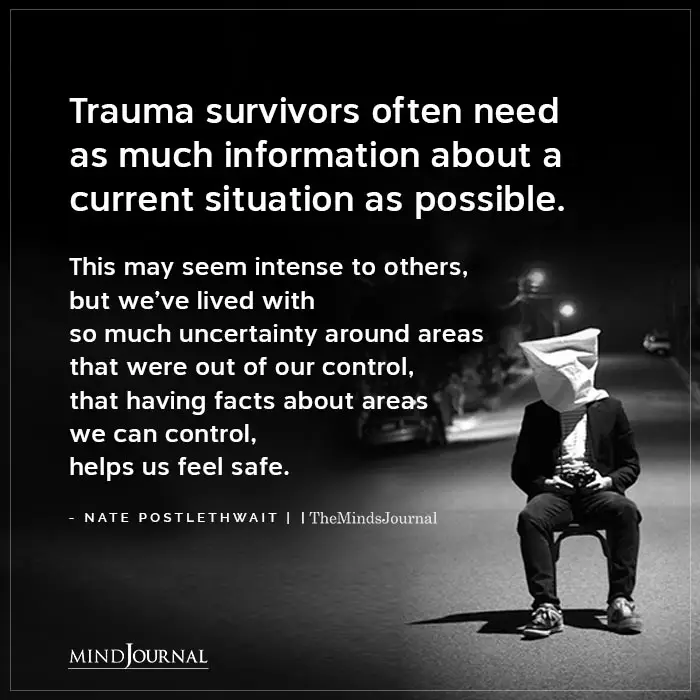
1. Positive affirmations.
In order to reprogram our subconscious mind, which has undoubtedly been affected by the abusive words and actions we’ve undergone, we have to literally reprogram our brain and cease the negative, destructive automatic thoughts that may arise in our day-to-day life.
These thoughts stir self-sabotage and hold us back from embracing all the power and agency we have to rebuild our lives. Many of these thoughts are not even our own, but rather, the voices of our abusers and bullies who continue to taunt us far long after the abuse has ended.
When we’ve been abused or bullied in any way, we continue to abuse ourselves with what trauma therapist Pete Walker calls the “inner critical voice.“
The most powerful way I’ve reprogrammed my own inner critical voice is through a system of positive affirmations that I engage in on a daily basis. These are positive affirmations that should be tailored to your particular wounds and insecurities.
For example, if you have an insecurity about your appearance that your abuser has attempted to instill in you, a positive affirmation can gently interrupt the pattern of ruminating over such harsh comments by replacing the toxic thought with a loving one.
A self-sabotaging thought about your appearance suddenly becomes, “I am beautiful, inside and out” whenever the harmful thought or emotion associated with the thought comes up.
One of the most effective techniques in engaging in these positive affirmations aside from saying them aloud is a technique from my larger method of “reverse discourse” which I discuss in my first book, The Smart Girl’s Guide to Self Care.
Record all of your positive affirmations on a tape recovery or a voice recording application and listen to them daily. Hearing your own voice repeating these affirmations daily – “I love myself,” “I am valuable,” “I am worthy,” “I am beautiful” – is a potent way to rewrite the narrative abusers have written for you and banish that browbeating bully inside of your own head.
2. Translate mind to body.
According to trauma expert Dr. Bessel van der Kolk, author of The Body Keeps the Score, trauma lives in our bodies as well as our minds. It’s important that we find at least one form of physical outlet for the intense emotions of grief, rage, and hurt we’re bound to feel in the aftermath of abuse and trauma, in order to combat the paralysis that accompanies trauma, leaving us feeling numb and frozen.
I personally love kickboxing, yoga, dance cardio, and running while listening to empowering music or listening to positive affirmations. Do something that you’re passionate about and love to do. Don’t force your body into activities that you’re not comfortable with or exhaust yourself. Using physical exercise as an outlet should be an act of self care, not self-destruction.
Read: 3 Lessons I Learned From Growing Out of Trauma
3. Breathe.
For abuse survivors who struggle with symptoms of PTSD or complex PTSD, mindful breathing exercises and meditation are especially helpful in managing our fight, flight, freeze or fawn responses to flashbacks and ruminating thoughts.
Taking time to observe our breath, whether it be for five minutes or an hour, can be immensely helpful in managing our emotions and nonjudgmentally addressing our painful triggers. In addition, meditation literally rewires our brain so that we are able to mindfully approach any maladaptive responses that may keep us locked into the traumatic event.
If you have never meditated before and would like to try it, I would highly recommend an app known as Stop, Breathe and Think, recommended for people of all ages.
4. Channel your pain into creativity.
Art therapy is especially helpful to survivors of PTSD because it enables survivors to find modes of expression that allow them to create and integrate rather than self-destruct. According to van der Kolk, trauma can affect Broca’s area of the brain which deals with language. It can shut this area of the brain down, disabling us from expressing what is occurring.
Allowing ourselves to express the trauma in a somatic way is important because trauma and the dissociation that comes with it can be difficult to process into words. When we are dissociated from the trauma, our brain protects itself from the traumatic event by giving us an outsider perspective to the trauma, disconnecting us from our identity, thoughts, feelings, and memories related to the trauma.
Read: How To Heal From Childhood Trauma When Its Hampering Your Mental Health
The brain tends to “split” a traumatic event to make it easier to digest. Since trauma can disconnect us from both our minds and bodies through processes of depersonalization, derealization, and even amnesia, art can help us reintegrate the trauma where we were previously disconnected from the experience.
As Andrea Schneider, LCSW, puts it, expressive arts can be a way of “mastering the trauma” that we’ve experienced. Whether it’s writing, painting, drawing, making music, doing arts and crafts – it’s important to release the trauma in alternative ways that engage both our mind and body.
When we create something, we can also have the option of sharing our art with the world – whether it’s a beautiful painting or a book, harnessing our pain into creativity can be a life-changing experience – both for ourselves and for others.
5. Asking for help
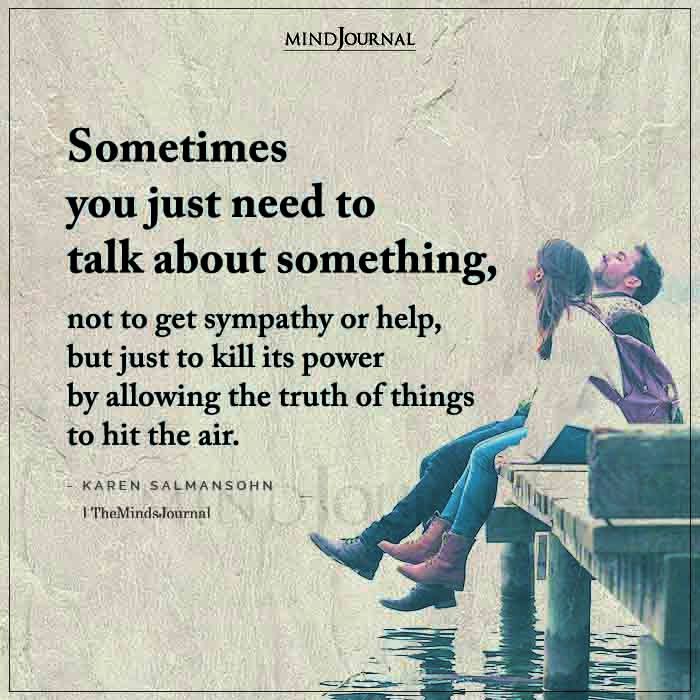
Contrary to popular opinion, asking for help does not make you helpless or powerless. It is in fact, a strong recognition of your own power to be able to seek help and be open to receiving it. If you are struggling with the effects of trauma, I highly recommend finding a validating mental health professional who specializes in trauma and understands its symptoms.
It is important that you are supported in a safe space with a trauma-informed counselor who can meet your needs and gently guide you with the appropriate therapy that addresses. Some survivors benefit from EMDR therapy, which is a therapy that enables them to process their trauma without being re-traumatized in the process. Be sure to discuss with your mental health professional what the right type of therapy is for you.
As a supplement to therapy, you may wish to also consult the resources on this excellent list, which includes free or low-cost mental health resources.
Throughout this journey of healing from trauma and abuse, make sure that you are being self-compassionate towards yourself. A lot of trauma survivors suffer from toxic shame and self-blame.
It’s important that we are gentle towards ourselves during this journey, that we acknowledge that we are doing our very best and that we ask ourselves every day, “What would be the most loving thing I can do for myself at this moment?” in any circumstance. There is no time limit to learning and healing, there is only the power of transforming our adversity into victory.
Copyright © 2016 by Shahida Arabi. All rights reserved. No part of this entry, which is an excerpt from my upcoming book, may be reproduced, distributed, or transmitted in any form or by any means, including photocopying, recording, or other electronic or mechanical methods, without the prior written permission of the author. This includes adaptations in all forms of media.
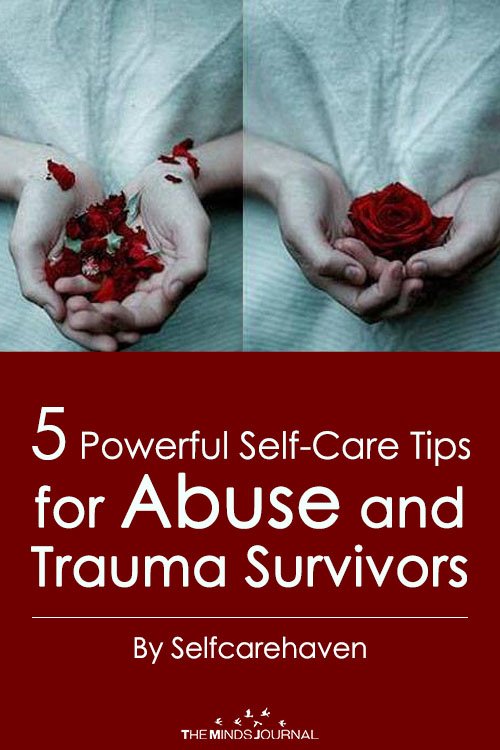
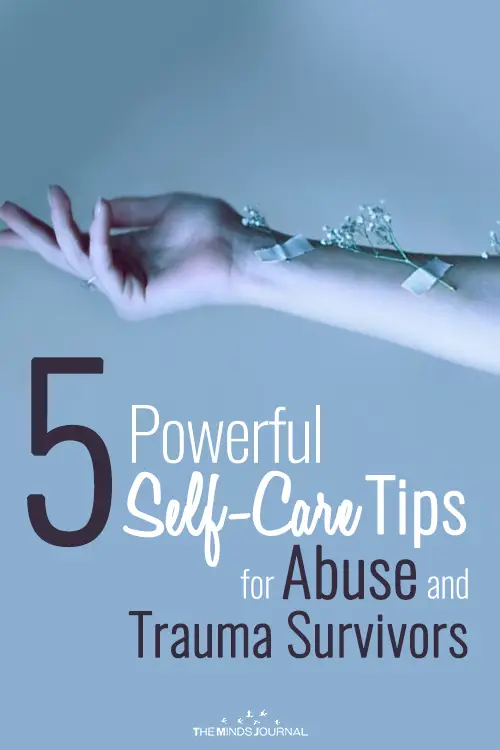
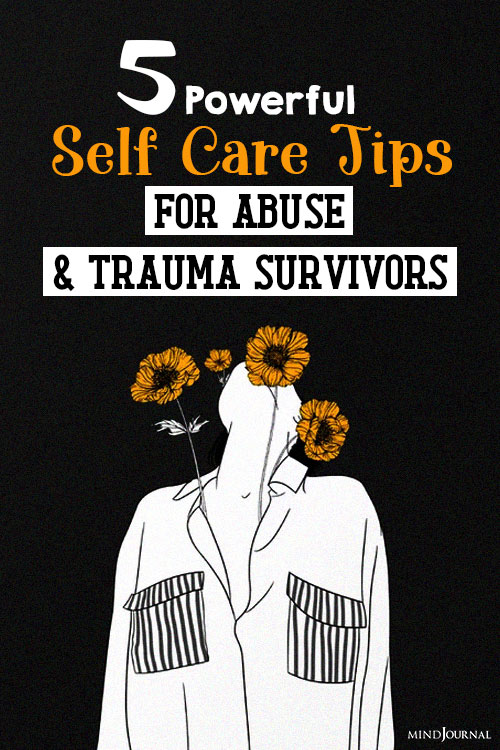
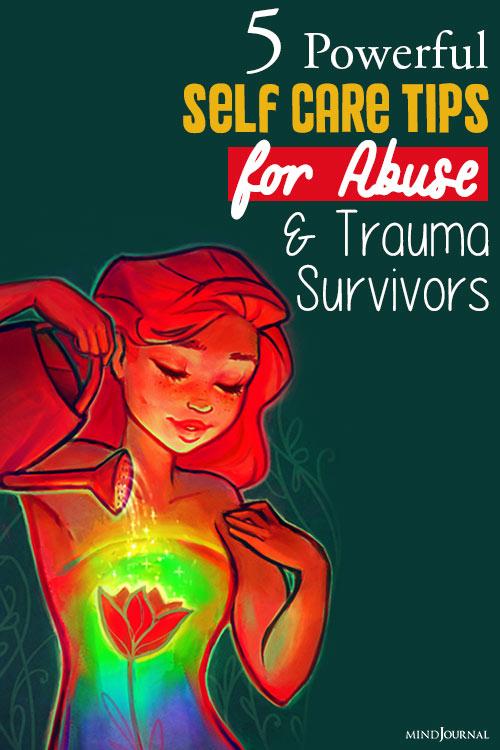
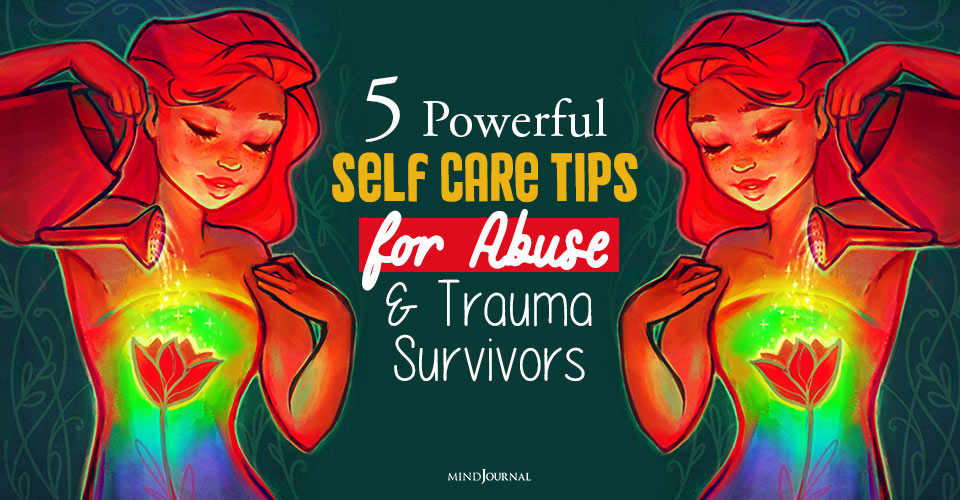







Leave a Reply
You must be logged in to post a comment.